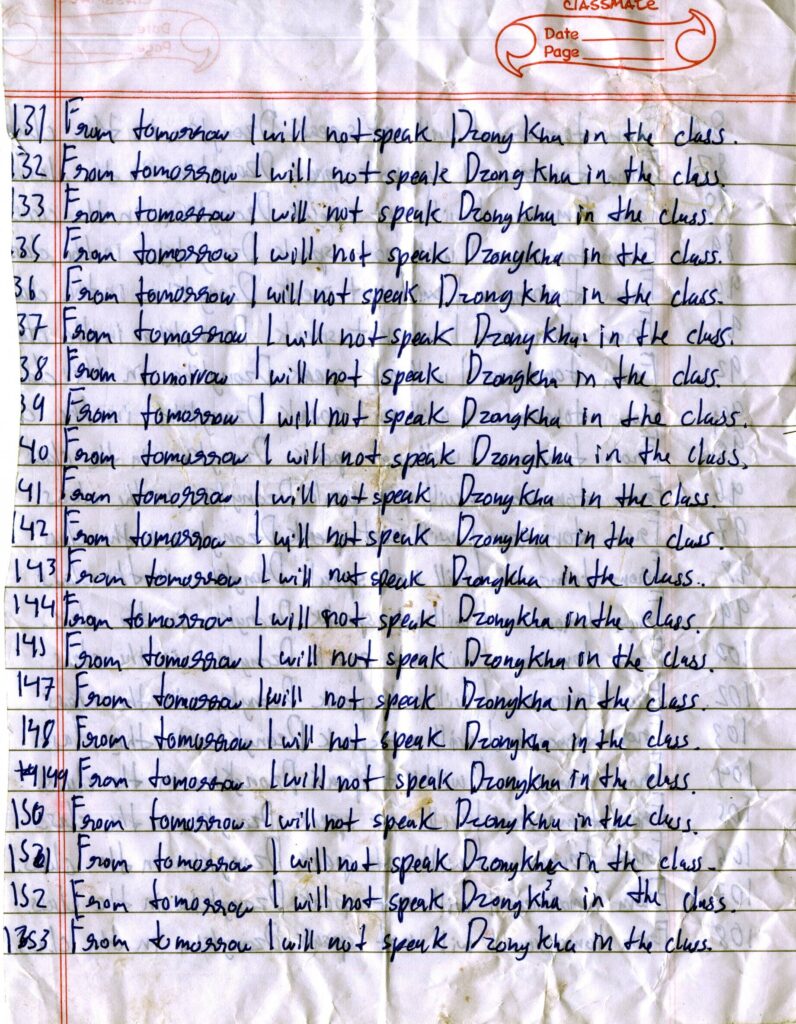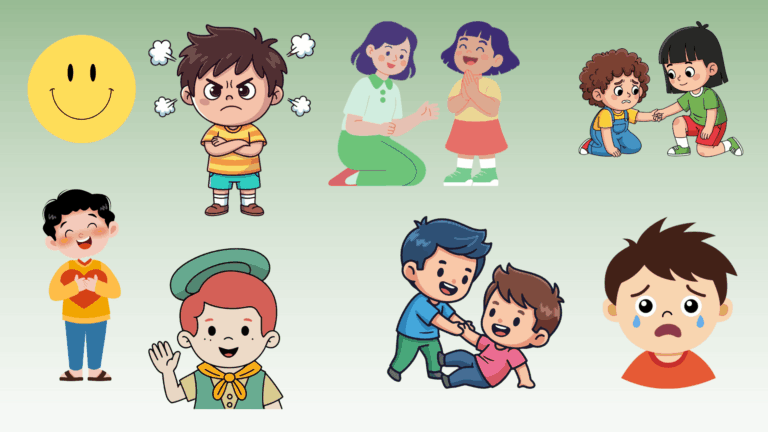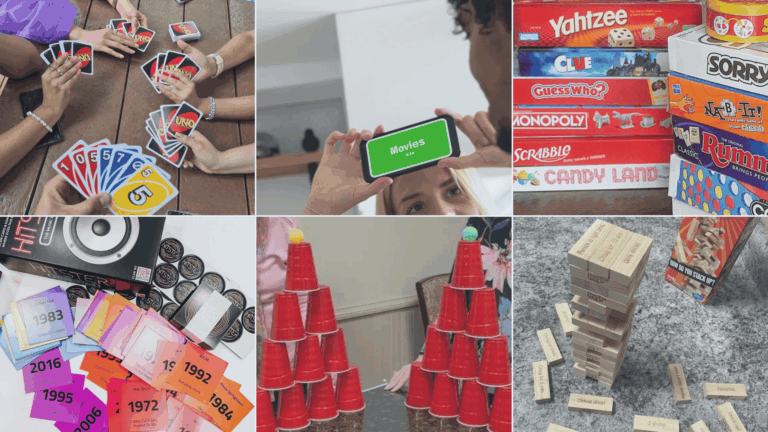Teenage is the most adventurous stage in parent’s as well as teen’s life. In that situation, kids who are going through such a phase observe a lot of change in their lives. Especially when it comes to behavioral issues, in such cases, parent’s roles become most important to teach kids about the right path and punish teens when necessary. Punishments are also important because they teach kids about responsibility and accountability.
However, you need to be patient as well, and you have to maintain a balance between being too hard on them and not being lenient. While the approach to parenting has evolved, some classic disciplinary methods remain relevant for instilling valuable life lessons in teenagers. This article will explore 10 classic punishments for teenagers that have endured over the years.
Tune in to know everything in detail and learn the tactics of punishing the teens.
What Is the Need to Punish Teens During Their Growing Age?

Punishing teenagers during their teenage period is a necessary and integral aspect of their development. Adolescence is an adventurous phase marked by significant cognitive, emotional, and social changes, during which a child tests boundaries and forms their sense of self and values.
Thus, punishing teens according to their actions helps them internalize crucial life lessons about accountability, responsibility, and the impact of their choices on themselves and others.
Constructive punishment fosters an understanding of cause-and-effect relationships. Moreover, encouraging teenagers to make informed decisions and consider the potential consequences of their actions is a healthy parenting idea. Also, the motive to punish teens provides a structured framework in their lives that helps establish clear boundaries and guidelines for acceptable behavior. This also contributes to their personal growth and eventually helps in having a better society as responsible and conscientious adults.
Classic Ideas to Punish Teens for Their Actions
During the teenage phase, shouting and beating kids is never an option, as this can harm the kid physically and mentally. But some ways or methods can be implemented on the kids so that they can act according to their age. Below, we have mentioned 10 classic ideas to punish teens for their actions.
1. Grounding

Grounding is a time-tested disciplinary method. This method to punish teens involves limiting a teenager’s freedom by restricting their ability to engage in social activities, attend events, or spend time with friends. This punishment serves as an effective way to emphasize the connection between behavior and consequences. By confining them to their home environment, teenagers are encouraged to reflect on their actions and consider the impact of their choices on their relationships and privileges.
Grounding not only provides parents with a means to reinforce rules and expectations but also offers teenagers an opportunity for introspection. This leads to personal growth and a deeper understanding of the importance of following family values and societal norms. While it is essential to apply grounding, using it as a tool for teaching responsibility and fostering self-awareness in teenagers. This can also be useful in molding teenagers into responsible and accountable individuals.
2. Loss of Privileges

When teenagers break the rules or display irresponsible behavior, one classic way to help them learn from their mistakes is by taking away certain privileges. This means things like using their phones, going out with friends, or enjoying leisure activities could be off-limits for a period of time. The idea behind this punishment is straightforward: By experiencing the loss of enjoyable things, teenagers start to connect their actions with consequences.
This helps them understand that being responsible and making good choices comes with rewards, while poor decisions can lead to losing out on things they like. Through this kind of punishment, parents aim to teach their teenagers important life lessons about cause and effect and the importance of being accountable for their actions. Thus, this method to punish teens is quite trustworthy.
3. Extra Chores

In order to punish teens because of their misbehavior, asking them to do extra chores can make them learn a lesson. Sometimes, when teenagers make mistakes or behave in a way that’s not responsible, parents might assign them extra chores around the house. This means they’ll have to do more cleaning, tidying up, or helping out with tasks they don’t usually do. It might not sound fun, but there’s a good reason behind it.
By doing extra chores, teenagers learn that their actions have consequences and that they need to make things right. Plus, it teaches them about responsibility and the importance of considering how their behavior affects the people around them. So, the next time you see your teenager vacuuming the living room more than usual, it’s not just about a cleaner house – it’s about learning and growing, too.
4. Apology Letters

When teenagers do something wrong or hurt someone, a classic way for parents to help them understand the impact of their actions is by asking them to write an apology letter. It might seem like just writing words on paper, but it’s much more than that. By putting their feelings into words and saying sorry, teenagers learn to take responsibility for what they did. Writing an apology letter helps them think about how their actions affected someone else and helps them practice empathy, which means understanding how others feel.
It’s like a step towards making things right and showing that they care about the people around them. So, next time you see your teenager with a pen and paper, they might be learning an important lesson about owning up to their mistakes and showing kindness. This method to punish teens teaches the young one a lot of things.
5. Curfew

You know how sometimes teenagers need to be home by a certain time in the evening? That’s called a curfew. Parents set curfews to make sure teenagers are safe and have enough rest. But if a teenager breaks the curfew rule, parents might adjust the curfew to be earlier for a while. It might feel like a bummer because it means less time out with friends or doing things outside the house.
But there’s a lesson in it. Changing the curfew teaches teenagers about sticking to their word and being responsible. It shows that following rules is important and helps them learn to manage their time better. So, if your curfew changes, remember that it’s a way for parents to guide you and help you grow into a reliable and responsible person.
6. Community Service

Community Service can be a fruitful method to punish teens. If a teenager does something not-so-great, parents might ask them to spend some time doing helpful things for others. It could be cleaning up a park, visiting elderly people, or volunteering at a local event. Even though it might feel like a bit of work, community service is like a hidden treasure of learning.
It teaches teenagers about giving back, being part of something bigger, and understanding that their actions can make a positive difference. So, when you find yourself picking up litter or reading to kids at the library, know that you’re also picking up valuable life lessons that can shape you into a caring and responsible person.
7. Technology Timeout

Imagine taking a break from your favorite gadgets like phones, tablets, and computers. That’s what a technology timeout is all about. Sometimes, if teenagers spend too much time glued to screens or use technology in a way that’s not responsible, parents might say it’s time for a timeout. During this break, you get to explore the world beyond screens, like reading books, playing outdoor games, or having face-to-face conversations.
It might feel strange at first, but it’s like a chance to refresh your mind and discover other cool things you can do. The timeout helps teenagers learn that balance is key. Enjoying technology is great, but spending time in the real world is important, too.
8. No Entertainment

Have you ever had moments when your usual fun stuff like watching TV, playing video games, or going to the movies is off-limits? That’s what “no entertainment” means. You can use this classic punishment if a teenager’s behavior needs a reminder. It might feel a bit boring, but there’s a reason behind it. When entertainment is taken away, it shows that there are consequences for actions. This kind of break gives teenagers time to reflect on their choices and think about better decisions.
Plus, it pushes them to find other interesting things to do, like reading a book, drawing, or spending time with family. So, if you find yourself without your usual entertainment, remember that it’s a chance to learn, grow, and find enjoyment in different ways. In this fast-paced and technologically advanced world, this method to punish teens will always be successful.
9. Reflective Essays

Ever been asked to write about something you did and what you learned from it? That’s what a reflective essay is all about. If teenagers make mistakes or behave in a way that’s not so great, parents might assign them to write one. It might feel like homework, but it’s actually a cool way to think deeply. Reflective essays help teenagers understand their actions, the reasons behind them, and what they can do differently next time. It’s like a chance to hit pause and look at things from a different angle.
Through writing, teenagers learn about responsibility, consequences, and how to make better choices. So, when you’re working on a reflective essay, remember that it’s not just about words on paper. It’s about exploring yourself and becoming a wiser person along the way. So next time you can’t find a way to control your teenager, then use this method to punish teens in your house.
10. Loss of Monetary Privileges

You know how sometimes you get money for things you like or want to do? Well, if teenagers don’t act responsibly with their money or make choices that aren’t great, then you can put a hold on giving them money for a little while. This is called a loss of monetary privileges. It might feel a bit tricky for your teen. This is because they won’t have the money they’re used to, but there’s a lesson in it.
It helps teenagers learn about the value of money, making wise decisions, and thinking ahead. It’s like a way to show that money comes with responsibilities, and being smart about it is important. So, when you’re not getting your usual allowance, remember that it’s a chance to understand money better and grow into a more financially savvy person. So, to punish teens, try this method, and they will understand everything better.
Conclusion
Punishments sometimes teach kids the most valuable life lessons of all time. Thus, you need to be quite creative when it comes to punishing teens. Disciplining teenagers is a delicate balancing act that aims to teach valuable life lessons while nurturing their growth and development. Classic punishments have endured because they address core principles such as accountability, empathy, responsibility, and the understanding that actions have consequences.
However, it’s important for parents to remember that punishment should be coupled with open communication, understanding, and guidance. As times change, the methods of discipline may evolve. Still, the fundamental goal remains the same: to shape teenagers into responsible, empathetic, and capable adults who can contribute positively to society.
Frequently Asked Questions
Are These Punishments Effective?
Yes, when applied thoughtfully and consistently, these punishments can be effective in teaching important life lessons. However, each teenager is unique, so parents should tailor punishments to suit their child’s personality and learning style.
What’s the Difference Between Punishment and Discipline?
Punishment is a consequence of an action that’s meant to teach a lesson, whereas discipline encompasses the broader approach of guiding and teaching teenagers about appropriate behavior.
Can Punishments Harm the Parent-Child Relationship?
If used excessively or without open communication, punishments can strain relationships. It’s important for parents to explain the reasons behind punishments and maintain a supportive atmosphere.
Are There Alternatives to These Punishments?
Absolutely. Alternative approaches include discussions, problem-solving, collaboratively setting consequences, and focusing on positive reinforcement rather than punitive measures.
Can Teenagers Still Rebel Despite These Punishments?
Rebellion is a common aspect of adolescence, but these punishments aim to guide teenagers toward making more thoughtful choices. Open communication can help minimize rebellious behavior.



















One Response
I am truly thankful to the owner of this web site who has shared this fantastic piece of writing at at this place.